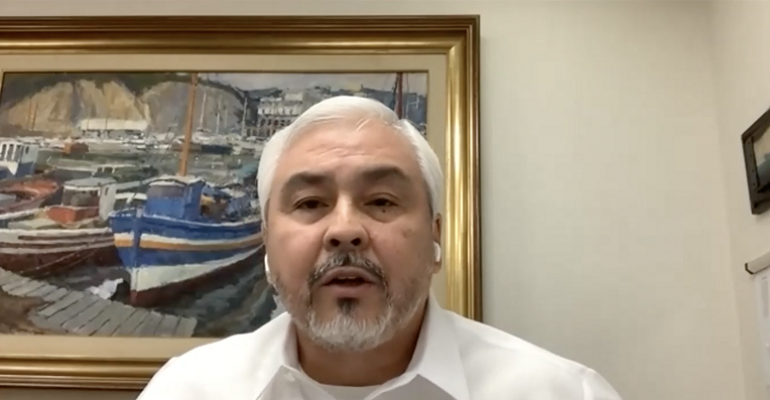The Sea Asia Virtual Preview webinar earlier this week - Industry Panel: Thriving Shipping Business through the Human Element – painted a picture of ongoing challenges for crew change despite unprecedented cross industry collaboration.
Setting the scene moderator Nitin Marthur, Managing Director Commercial for Wallem, said that as result of the pandemic, “Seafarers have been treated as pariahs and number issues such as mental and physical well-being of crew needs to be proactively confronted.
“Sadly it takes a pandemic for us to have dialogue about seafarers basic human rights and next generation seafarer training.”
Speaking from the perspective of one of the world’s largest crewing managers Gerardo Borromeo, Vice-Chairman and CEO of PTC Group, explained: “This has been an unprecedented time for all of us over the last 13 months and we don’t really see the end in sight for many reasons.
“This has been a very complex problem brought about by the fact we are dealing with so many moving parts. Just when we thought we had all the questions answered the conditions change.”
While on the positive side Borromeo highlighted the unprecedented cooperation seen between shipowners and unions there are factors that are beyond the control of such collaboration.
“National emergencies seem to be able to take precedent over various [international] conventions and that has left us holding a situation we can’t control,” he said.
“The situation is so fluid that as we address the questions that were first pointed out new questions come up, new variants come up, spikes occur, and all of a sudden the curtains come back down again.”
 Simon Frank, Chief Human Resources Officer for ship manager Thome Group, agreed on the continued difficulties that the industry was facing with crew change, and that it had focused on the elements it could control to try and keep vessels under management Covid free.
Simon Frank, Chief Human Resources Officer for ship manager Thome Group, agreed on the continued difficulties that the industry was facing with crew change, and that it had focused on the elements it could control to try and keep vessels under management Covid free.
“We have developed a completely new crew change protocol which is based on the two elements we can take action on today, which is quarantine and testing. It has been a huge challenge, a huge task,” he said.
Frank believes even bigger challenges could be to come for crew change. “When we look at the situation today we are nowhere near the end of the challenges. What we are bracing for now is probably even bigger with the developments in some countries where we still have a huge number of positive cases, the impact has not all decreased.”
Indeed, just the day following the webinar Singapore announced it was barring crew change for seafarers with travel to India the previous 14 days following a huge spike of Covid-19 cases in the country.
 Some charterers have come under fire for blocking crew changes, however, Jenna Renwick, General Manager, Marine Pacific Operations & Performance for Rio Tinto, explained how a responsible charterer has tackled the situation.
Some charterers have come under fire for blocking crew changes, however, Jenna Renwick, General Manager, Marine Pacific Operations & Performance for Rio Tinto, explained how a responsible charterer has tackled the situation.
“From the start understanding the needs of the owner and crew is vital and then there is an ongoing active dialogue throughout the charter,” she said.
“We’ll often assign a vessel to a specific port in order to facilitate a crew change, we align our bunkering plans if it will make a crew change easier. Every crew change on each our routes requires a deviation so we support that in our schedule.”
Meanwhile Pradeep Chawla, Managing Director QSHE and Training for Anglo-Eastern Ship Management highlighted the denial of medical treatment ashore for seafarers.
“There is lack of medical facilities for ships that are affected by Covid. We have had instances where cases of fever have been refused by ports to have the ship to enter,” Chawla said.
“We’ve had cases with stress for everybody onboard as there is doubt about Covid and the amount of medicines and oxygen onboard is certainly not enough if there are multiple numbers of people infected on the ship.”
So, is there an end game in sight? Looking ahead Borromeo said: “I see we will only be able to get out of this when perhaps enough of the world population are vaccinated. Where the vaccines are able to control the situation we are faced with only then will be able to come back to some kind of better normal.”
Copyright © 2024. All rights reserved. Seatrade, a trading name of Informa Markets (UK) Limited.
Add Seatrade Maritime News to your Google News feed.  |


